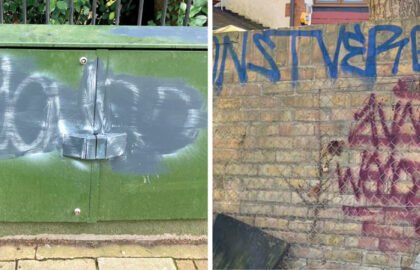Wanstead Climate Action is a community group keen to encourage local and central government to address the climate emergency. Here, Tina Nieman Da Costa talks about air pollution
Air quality was the main reason Daisy chose not to live in Wanstead. She was concerned about the effects of pollutants on the lungs of her unborn child.
This was not unreasonable; after all, there is nothing a parent would not do for their child. She checked government-sanctioned London air quality maps and made the decision based on the likelihood her child would not grow up with one of any number of respiratory disorders associated with air pollution.
There are millions of parents who are not as lucky as Daisy. For these parents, their sacrifices for their children and grandchildren are hindered by the increase in the burning of fossil fuels caused by the current uncontrolled hunger for economic growth.
It can be said, and rightly so, air pollution has decreased in the UK at a steady rate since the coal-burning carefree days of the Industrial Revolution, but a closer look reveals, as a nation, we have exported ours to manufacturing countries such as China and India and mining regions like central and southern Africa. Regardless of where it is created, what goes around, keeps on going around.
Exposure to carbon monoxide (one of the gases released by the turning of the key in any normal functioning combustion engine) can cause headaches, dizziness and nausea; moderate prolonged exposure is also linked to heart disease. Nitrogen dioxide, another gas created during the process of burning fossil fuels, causes inflammation in the lining of the lungs and reduced immunity to lung infections, leading to wheezing, coughing, colds, flu and bronchitis. Higher levels can increase asthma attacks in children and causes a higher risk of heart complications in older people. Levels of these two pollutants have reduced significantly, as much as 55%, due to the current lockdown, according to research from King’s College London.
Since 2005, there have been efforts by the UK government to improve air quality. The tentative steps taken, however, are nowhere near the radical alterations needed for a brighter, cleaner future. The World Health Organization estimates seven million people die each year from causes directly attributable to air pollution, 100,000 of those in the UK.
It’s left up to us. We can change our behaviour. Reduce our consumption. We can eat less meat, more local and more organic. We can drive electric cars. We can take fewer flights. We can make our phones and laptops last longer. We can be more than consumers. We can join groups to hold our government to account.
What we cannot do is deny the future children of planet Earth, Daisy’s children, your children, the right to a fresh breath of air.




